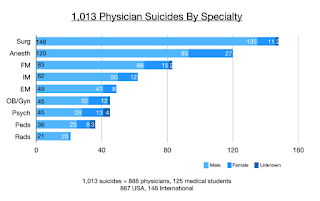T. S. Doherty & A. E. Carroll
AMA J Ethics. 2020;22(9):E773-778.
doi: 10.1001/amajethics.2020.773.
Abstract
Like all humans, health professionals are subject to cognitive biases that can render diagnoses and treatment decisions vulnerable to error. Learning effective debiasing strategies and cultivating awareness of confirmation, anchoring, and outcomes biases and the affect heuristic, among others, and their effects on clinical decision making should be prioritized in all stages of education.
Here is an excerpt:
The practice of reflection reinforces behaviors that reduce bias in complex situations. A 2016 systematic review of cognitive intervention studies found that guided reflection interventions were associated with the most consistent success in improving diagnostic reasoning. A guided reflection intervention involves searching for and being open to alternative diagnoses and willingness to engage in thoughtful and effortful reasoning and reflection on one’s own conclusions, all with supportive feedback or challenge from a mentor.
The same review suggests that cognitive forcing strategies may also have some success in improving diagnostic outcomes. These strategies involve conscious consideration of alternative diagnoses other than those that come intuitively. One example involves reading radiographs in the emergency department. According to studies, a common pitfall among inexperienced clinicians in such a situation is to call off the search once a positive finding has been noticed, which often leads to other abnormalities (eg, second fractures) being overlooked. Thus, the forcing strategy in this situation would be to continue a search even after an initial fracture has been detected.













